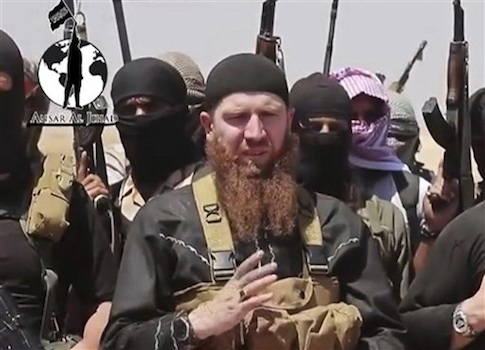The Iraqi Security Forces (ISF) are incapable of launching a counteroffensive against a radical jihadist group that now controls large swaths of the country without substantially more assistance from the United States, experts said on Friday.
Retired Army Lt. Gen. James Dubik, a senior fellow at the Institute for the Study of War (ISW) who formerly trained the ISF, said Iraq’s army suffers from ineffective military leadership in the face of a violent insurgency from the Islamic State of Iraq and the Levant (ISIL or ISIS).
Iraqi Prime Minister Nouri al-Maliki has "eroded the chain of command" by superseding the traditional army joint chiefs with his own personal "office of the commander-in-chief," Dubik said at an ISW event. Officer appointments lower down the chain of command were replaced with political appointees loyal to Maliki.
Maliki, a Shiite Muslim, has also been accused of inflaming sectarian tensions by ordering the detentions and sometimes executions of Sunni political opponents and protesters.
While the different factions in Iraq wrangle over Maliki’s role in the government following the April elections, Dubik said the United States should act decisively and not wait for a political solution to emerge. Involvement from Iran and Saudi Arabia already threatens to explode the conflict into a wider sectarian war.
"Waiting for [a political solution] is not in U.S. interests," he said. "While we wait for that—we’ll wait for a long time—the ISIL entity will solidify and force will be used to change sovereign recognized borders."
Dubik said the ISF desperately needs intelligence and logistical support as well as assistance for airstrikes and raids by special operations forces. The United States should also seek to integrate Kurdish forces in northern Iraq and Sunni tribes from the West into the fight against ISIL before the conflict splinters along ethnic and religious lines, he said.
President Barack Obama has sent about 650 troops to Iraq to assess the state of the ISF and advise them on combating the extremist group, but no additional action has been announced.
ISIL has continued its march toward Baghdad after seizing the northern cities of Tikrit and Mosul, where it reportedly obtained a small amount of uranium last month from a university in the city. Experts say the material could not yet be fashioned into a nuclear weapon but still poses a proliferation concern.
ISIL is simultaneously seizing territory in Syria, most recently the city of Der al Zour along the Iraqi border, and partnering with the Syrian regime to squeeze out the moderate Free Syrian Army (FSA) rebels.
Jessica Lewis, research director for ISW and a former U.S. Army intelligence officer in Iraq and Afghanistan, said ISIL’s multiple fronts prove that its ambitions lie beyond Iraq and Syria. ISIL has developed military capacities exceeding those of a normal terrorist group as it seeks to establish a sovereign Islamic caliphate across several states.
"I do expect ISIS will pose a genuine threat to Lebanon, Jordan, and other states in the region," Lewis said. "Their ambitions are not locally bound."
Baghdad remains in the jihadist group’s crosshairs even though it has not yet launched a direct offensive on the city, she said. ISIL could be planning attacks on bases, the international airport, and the representative seat of government.
A Baghdad offensive could destabilize the capital city into a war zone, undermining the government erected after years of fighting by U.S. troops.
"[ISIL] forces that are proximate to Baghdad are there already and have not engaged in the offensive," Lewis said. "There’s a likelihood that their planned offensive has not happened yet."
Additionally, military leaders say ISIL threatens U.S. national security and Europe by attracting thousands of Western fighters who can return to their homelands to commit attacks.
